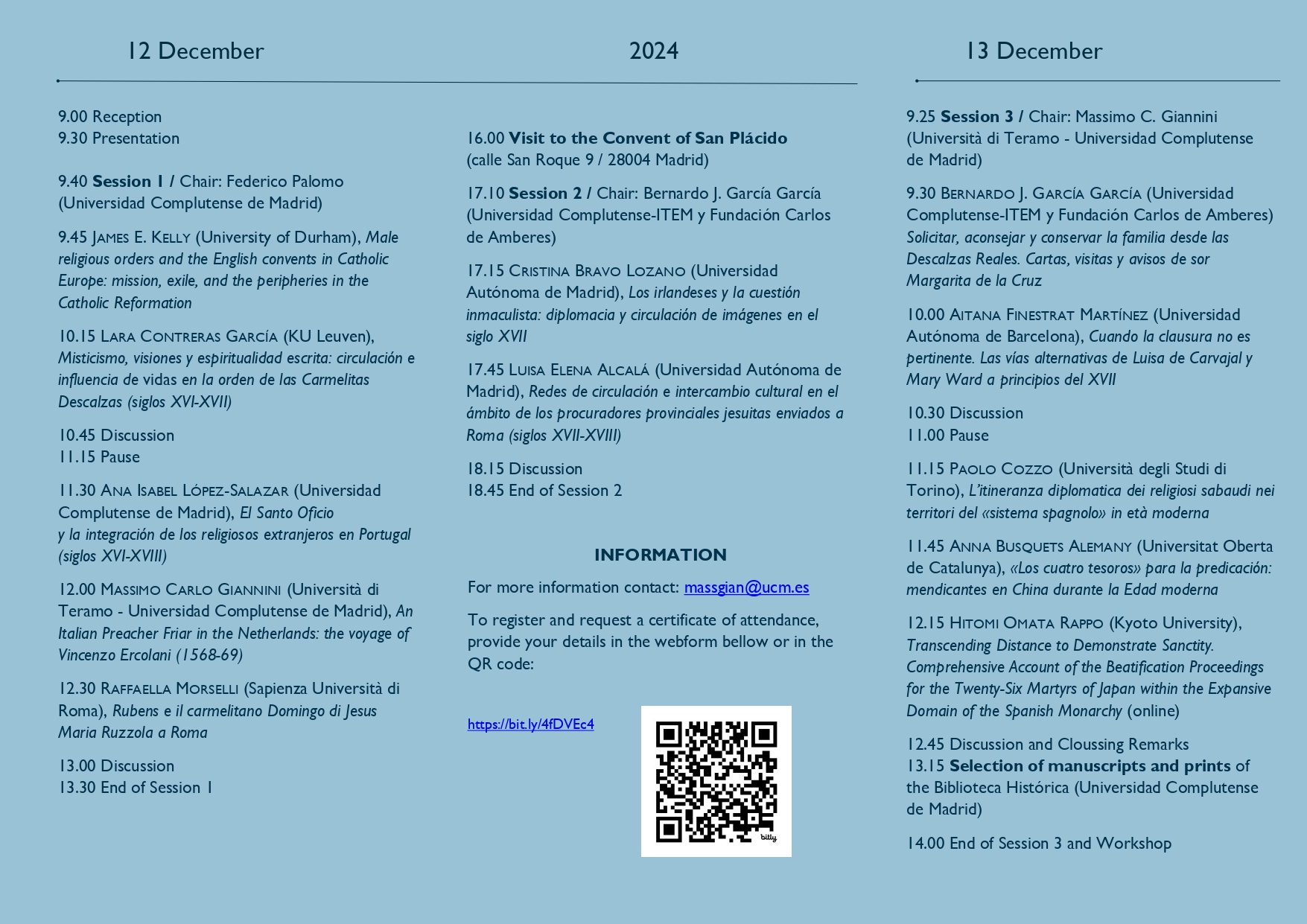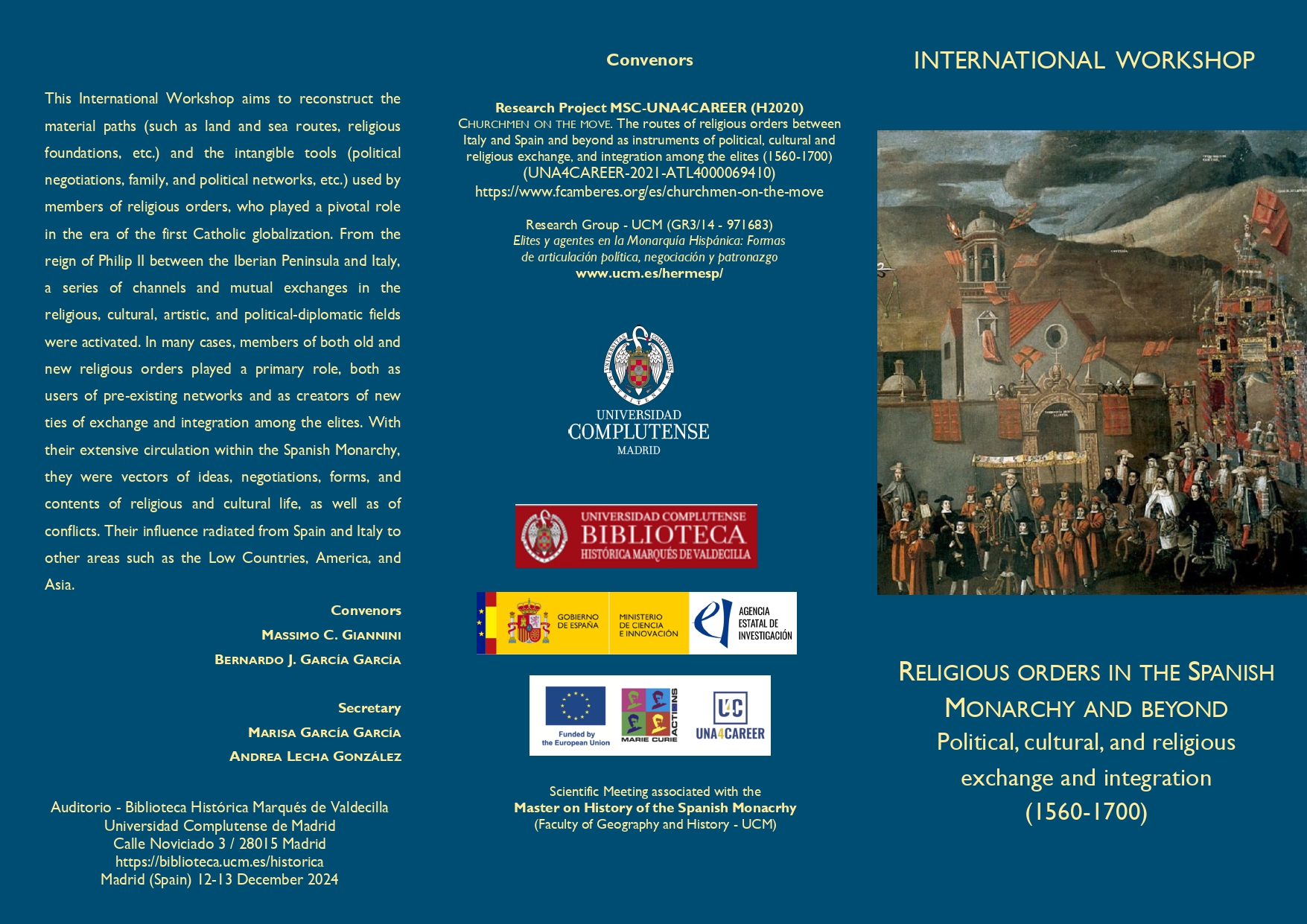Seminario Internacional "Religious Orders in the Spanish Monarchy and Beyond. Political, cultural and religious exchange and integration (1560-1700)"
Biblioteca Histórica Marqués de Valdecilla (Auditorio) 12 y 13 de diciembre de 2024 (Madrid)
28 NOV 2024 - 09:22 CET
Los próximos días 12 y 13 de diciembre tendrá lugar el Seminario Internacional "Religious Orders in the Spanish Monarchy and Beyond. Political, cultural and religious exchange and integration (1560-1700)", enmarcado en el proyecto CHURCHMOVE. Churchmen on the move: the routes of religious orders between Italy and Spain and beyond as instruments of political, cultural, and religious exchange, and integration among the elites (1560-1700), (Ref. UNA4CAREER-2021-ATL4000069410) dirigido por Massimo C. Giannini (Università di Teramo), investigador postdoctoral Marie Sklodowska Curie, adscrito al Grupo de Investigación HERMESP y al Departamento de Historia Moderna e Historia Contemporánea de la UCM, y supervisado por Bernardo García García.
El seminario busca "reconstruct the material paths (such as land and sea routes, religious foundations, etc.) and the intangible tools (political negotiations, family, and political networks, etc.) used by members of religious orders, who played a pivotal role in the era of the first Catholic globalization. From the reign of Philip II between the Iberian Peninsula and Italy, a series of channels and mutual exchanges in the religious, cultural, artistic, and political-diplomatic fields were activated. In many cases, members of both old and new religious orders played a primary role, both as users of pre-existing networks and as creators of new ties of exchange and integration among the elites. With their extensive circulation within the Spanish Monarchy, they were vectors of ideas, negotiations, forms, and contents of religious and cultural life, as well as of conflicts. Their influence radiated from Spain and Italy to other areas such as the Low Countries, America, and Asia".
El seminario es coordinado por Massino Giannini y Bernardo García García.


